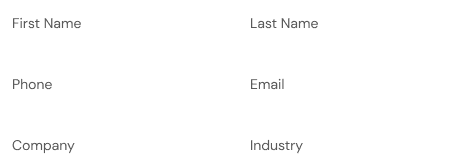
Three years on from the global shift to remote work, we can no longer pretend it’s something we’re still ‘trialing’. The fact is, we now know a lot about the choice to work remotely—the majority of it positive.
That said, apprehension around remote and hybrid work still rumbles on, likely down to continued misconceptions. Across the world, many company leaders and employees are still concerned about embracing remote work fully. That’s why we’re here to do some much-needed myth-busting—to help bolster the conviction of anyone who remains on the fence.
So, here are some of the most common misconceptions about remote work. Accompanied (of course!) by the facts.
Remote work makes us less productive
The first misconception is perhaps the most popular: productivity. From the beginning, company leaders were raising alarms about workers' productivity at home. Convinced that to work from home was to sit around in your pyjamas doing next to nothing, out of sight was certainly not out of mind. However, we now know that remote work doesn’t mean lower productivity at all. On the contrary, research has found that 77% of those who work remotely at least a few times per month showed increased productivity, with 30% doing more work in less time.
Remote work makes human connection harder
The fact is, connecting with your colleagues can be hard if you’re in an office or working from home. The key is company culture. The idea that we cannot connect properly virtually isn’t the case, it just depends on how we’re choosing to connect. Are you making time for casual catch-ups and creative ideas sessions? If not, perhaps it’s time to start. In increasingly global times, virtual conversations are actually the only way we can truly connect with our colleagues overseas. And research by Prodoscore found that communication increased by 47% during the fully remote period between March and April 2020, with activities such as emailing (up 57%), telephoning (up 230%) and chat messaging (up 9%) all climbing globally.
People don’t like remote work
It’s an interesting tactic, often used by C-suite leaders, to peddle the narrative that most people don’t like remote work, and that we all miss the old in-person ways. Certainly, it’s nice to catch up with our colleagues face to face now and again, but the statistics show that not only do the majority of workers like remote work, but they’ve actually come to see it as a right. Today, 40% of workers wouldn’t take a job that doesn’t have remote or hybrid options. As Julia Hobsbawm, Founder of the Nowhere Office Project, says: “You still have a few dinosaurs [and] corporate leaders who still want to flex shame their workers…but that’s not the majority. I think that the majority understand that the change is here.”
Remote work creates inequality
Another remote work myth is the fear of inequality. A lot of us worry that, if we choose to work remotely, we’ll fall behind our colleagues who decided to come into the office. This is by no means an inevitability. Again, it all depends on the culture of your company and how willing they are to treat their employees fairly. But, more than that, remote work actually levels the playing field for employees that would otherwise struggle in an office environment. Working mothers, amazing talents that live far away from city centers, people with physical disabilities or neurodivergent people, for example, often benefit hugely from the freedom and flexibility that remote work offers.
If you’re still unsure about the benefits of remote work but don’t want to get left behind, why not book a call with a member of our friendly team here at Remotify? We specialise in setting up companies with flexible remote work services that will stand them in good stead, long into the future.
Spending Too
Much Time
Onboarding?
your remote hiring in the
Philippines, excellently.
Say Goodbye to High Costs!
Request Your Free Consultation Today andSave a Massive 70% on Your Workforce!

Ready to thrive in a remote-first work environment?


